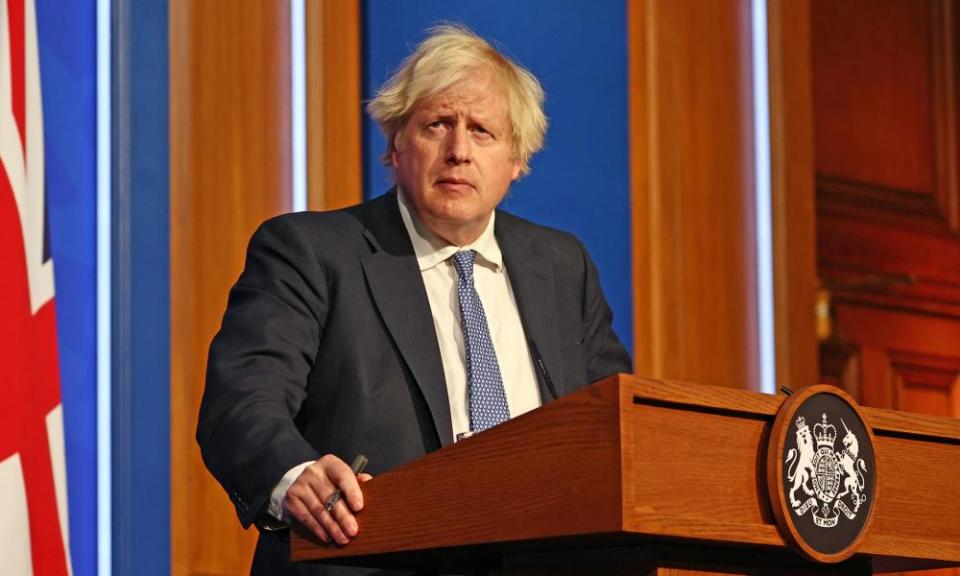Debacle over No 10 Christmas party ‘threatens efforts to control pandemic’

The debacle over the No 10 Christmas party threatens to undermine efforts to control the Covid pandemic at a time when the Omicron variant is fuelling fears of an imminent and major wave of disease, say scientists.
A so-called Cummings effect last year led to “negative and lasting consequences” on public trust following the lockdown-busting trips made by Boris Johnson’s aide, Dominic Cummings, researchers found.
Another apparent breach of Covid guidelines at Downing Street last December, and footage of Johnson’s aides joking about a party, risk deepening mistrust in ministers and exacerbating a sense of “us and them” just as the country faces further plan B restrictions to combat the virus, experts warned.
“There is a real concern over Omicron. It could be completely out of control fairly quickly,” said Stephen Reicher, a professor of psychology at the University of St Andrews and a member of the Sage subgroup on behavioural science. “We need a communal response to keep ourselves safe, and for that we really need trust in government.
“In the middle of a national crisis where we need to react quickly and need to know how to react, we need a government that can guide us; a government that we think of as ‘them’, and as dishonest, and as liars, is not the government we need right now.”
The impact of any loss of trust may go far beyond the conflicting advice about Christmas parties, Reicher warned, potentially extending to areas such as the vaccination and booster programmes, which are already hampered by low trust in some communities.
In a paper published in the Lancet called the Cummings Effect: politics, trust, and behaviours during the Covid-19 pandemic, Dr Daisy Fancourt described the breach of Covid rules by Cummings last May as having “negative and lasting consequences … for public trust and the risks to behaviours”.
“While public adherence to Covid guidelines was falling before news emerged of Cummings’ drive to Barnard Castle, the decline worsened in England in the three weeks after, but not in Scotland or Wales,” said Fancourt, associate professor of psychobiology and epidemiology at UCL.
“One thing I’m nervous about with reporting on the No 10 breaches is that it could damage public compliance behaviours when they are more important than ever … so the important thing for the public to remember is that the vast majority of people are playing their part, following the rules to protect themselves and others.”
There is no simple equation between trust and adherence to Covid guidelines, Reicher points out. Some of those most angry with Cummings adhered more strictly to Covid rules in the aftermath because they wanted to demonstrate how different they were from government officials.
But others – those who already wanted to break the rules – felt emboldened. “It gave them a warrant, an excuse to break the rules. It doesn’t necessarily change people’s minds, but it empowers people to act on what they believe,” he said.
Prof Heidi Larson, director of the Vaccine Confidence Project at the London School of Hygiene and Tropical Medicine, said the Christmas party reports were “a betrayal of trust”. “It’s not good for a public that is really tired, that’s exhausted and ready to see the end of this pandemic. A lot of people have really hung in there in a deep desire to get through it,” Larson said.
“When you’ve been doing what’s felt like the right thing for getting on for two years, and it’s been a long haul, and then you see this, it’s a betrayal of trust … We need to distinguish between what’s happening at No 10 and what Chris Whitty and the scientific advice says.
“That is really important. The chief medical officer’s guidance should not be implicated in this at all.”

 Yahoo Finance
Yahoo Finance 